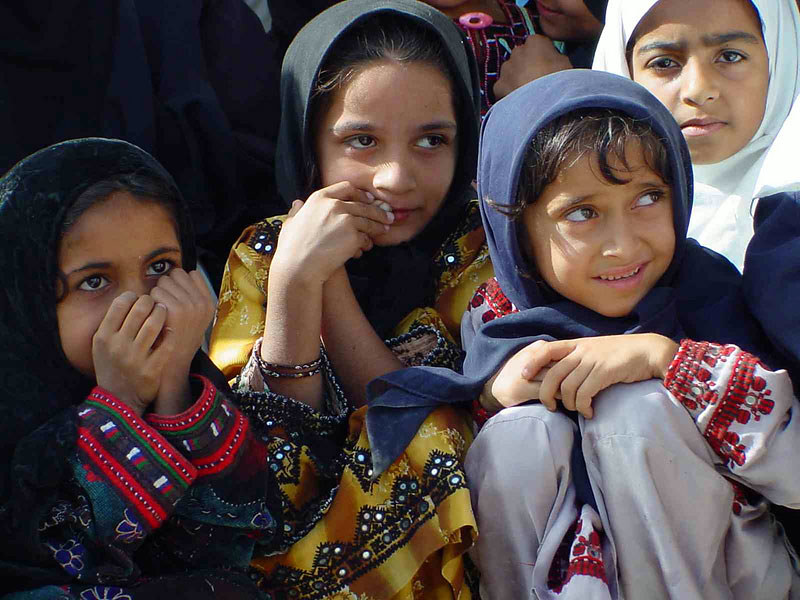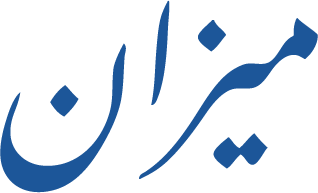Through the Eyes of the Child
The Perspective of Children in Iranian Cinema

When the whole world seems to come crashing down, how do the children fare? How do they cope with the kind of hardship we typically associate with the adult world? A number of Iranian films of note – Majid Majidi’s Children of Heaven (Miramax, 1998) and Color of Paradise (Sony, 2000), Bahman Ghobadi’s Turtles Can Fly (Lorber, 2000) and A Time for Drunken Horses (IFC, 2004), and Bahram Beizai’s Bashu, the Little Stranger (International Home Cinema, 1989) – have tried to answer this question by looking at the world through the eyes of children. Each of these films revolves around a loss of youth and innocence, where the simplicity of the child clashes into the reality of the adult world.
Children of Heaven starts with siblings, Ali and Zahra slyly passing notes in their notebooks to devise a plan of sharing one pair of shoes to get to school after Ali loses Zahra’s newly repaired sandals. They make sure not to let their parents know about their plan, as their dad does not have money to buy Zahra a new pair of shoes. The main concern of these children is making life easier for their parents who are struggling to keep the family afloat. The seemingly insignificant problem of a lost pair of shoes becomes Zahra and Ali’s whole world; they take self-sacrificing measures to alleviate their parents’ suffering and ultimately redefine what it means to be a child. Towards the end of the film, Ali exhibits his selflessness and dedication to helping his parents and his sister when he signs up for a running race in which the third-place prize is a new pair of sneakers. He promises Zahra he will “be third for sure” and will exchange the sneakers for a pair she desires. Ali eventually competes in the long-distance race and unintentionally wins first place. While everyone cheers and applauds him for his victory, Ali keeps his head down and tears begin to fill his eyes as he realizes he has let his sister down. Winning first place in a competition is normally an achievement that is celebrated with pride and joy, yet Ali’s only focus is his sister and his parents, not his victory.
Color of Paradise tells the story of Mohammad, a young blind boy, and his difficult relationship with his father. Despite being blind, Mohammad is loved and accepted by his grandmother and sisters and finds love and acceptance in nature. However, his father sees him as an embarrassment, refusing to accept his differences and instead attempting to keep his existence a secret. He tells Mohammad’s school teacher to “do [him] a favor and keep [his child],” doing whatever he can to pass on the responsibility of his child to others. Towards the end of the film, Mohammad confides in a blind carpenter, telling him that “nobody loves [him]” and everyone “runs away from [him] because [he is] blind”. This film navigates through Mohammad’s struggle for acceptance, and the insensitivity of a father towards his child with special needs.
Bashu, the Little Stranger, which opens in the south of Iran during the Iran-Iraq war, revolves around similar themes of misjudgment and alienation surrounding the child protagonist. After witnessing his family’s death in a bombing raid, Bashu must survive on his own. He sneaks into a truck and travels to the north of the country where everything is different, from the people to the food to the landscape to the language being spoken. Bashu clearly stands out in this new village. He is dark-skinned and speaks Arabic, causing him to be ridiculed and mocked by the other villagers. However, he soon meets Na’i, who assumes the role of a mother and accepts him for who he is. She forms a bond with him despite his appearance and cultural and linguistic differences. Na’i and Bashu’s differences bring them together and they develop their own sense of family and belonging, defying society’s barriers and stereotypes as well as the authority of the village elders. After the war strips Bashu of his family and his childhood, he is left alone to struggle with issues of national identity, ethnic diversity and displacement, and must learn to adjust to a brand-new life. Bashu’s survival and success as a member in this new village depends on his adaptability and the empathy of others, a situation not typically associated with the life of a child.
Turtles Can Fly, filmed in Iraqi Kurdistan after the fall of Saddam Hussein, examines the impact of war on a village of orphans, focusing on the dynamic between the teenage Agrin and her son, a product of her rape by an Iraqi soldier. Agrin frequently attempts to abandon her son because he is a reminder of her trauma. The film opens with Agrin standing on the edge of a cliff and jumping to her death, which we later discover occurs after she drowns her son in a pond. Dealing with the weight of war, rape, filicide, and suicide, this film is a notable example of how war strips children of their childhood, and the lasting impact it leaves on their lives.
A Time for Drunken Horses, set in the Kurdish mountains of Iran bordering Iraq, explores a heart-warming sibling relationship in which Ameneh and Ayoub risk everything for their brother, Madi, after they learn that he is terminally ill and must be operated on. Both Ameneh and Ayoub immediately take extreme measures to find money for his operation, even though the operation will only extend Madi’s life for only another few months. Ayoub takes on the dangerous job of smuggling truck tires across the border through the snow-covered mountains, and Ameneh agrees to marry into a family that can pay for Madi’s operation. This child-centered film is particularly moving, as Ghobadi uses nonprofessional actors to bring a raw emotionality to the screen. In the absence of parental figures, Ayoub and Ameneh are forced to become caretakers for their brother.
Common to all these films is the underlying theme of a loss of childhood and innocence, where children are forced to grapple with poverty, identity, acceptance, death, and war. Telling a story through the eyes of a child elicits a deeper sense of empathy for the viewer and offers a different understanding of the world and the plight of others.
AREZU MONSHIZADEH is a Bachelor of Arts candidate at Boston University majoring in Biology and minoring in Persian Cultural Studies.


